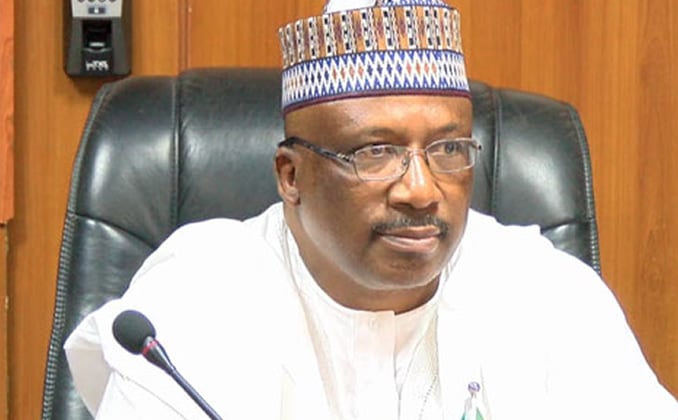A former Chief of Army Staff and ex-Minister of Interior, Lieutenant General Abdulrahman Dambazau (retd.), has suggested that the United States may be positioning itself to establish a military base in Nigeria under the guise of addressing alleged religious persecution and insecurity.
Speaking on Tuesday in Abuja at an event organised by the Just Friends Club of Nigeria, Dambazau argued that recent comments by American politicians and religious leaders about a supposed “Christian genocide” in Nigeria may be part of a broader geopolitical agenda.
According to him, “Religious tensions have been amplified by both domestic and foreign actors, sometimes resulting in the mischaracterisation of security incidents as targeting specific faith groups, despite their widespread impact.”
His comments come after US President Donald Trump, in a post on his Truth Social platform, warned that Washington might deploy troops to Nigeria unless the alleged killings of Christians cease. Trump reportedly directed the “Department of War” to prepare for “possible action” and threatened to suspend all US aid to Nigeria if the Tinubu administration failed to address the situation.
Dambazau, who served as Army Chief between 2008 and 2010, questioned Washington’s motives, recalling that the US had maintained two military bases in neighbouring Niger Republic for over a decade without preventing the spread of terrorism and banditry across the Sahel.
“In the more than ten years of US presence in Niger, what did the Americans do to prevent the growth of security challenges?” he asked. “It appears that the US is seeking an opportunity to establish an alternative base in Nigeria — a country it sees as vital to its interests.”
The retired general maintained that insurgency and terrorism in Nigeria are not rooted in religious persecution but are part of a wider pattern of insecurity spanning the Sahel and Lake Chad Basin. He noted that both Muslims and Christians have suffered from extremist violence, citing the killing of worshippers in mosques, the assassination of Islamic clerics, and attacks on traditional rulers as evidence.
Dambazau also criticised Nigeria’s limited capacity to protect its citizens, pointing to major security lapses such as the March 2022 Abuja–Kaduna train attack and the July 2022 Kuje prison break. He lamented that some communities, particularly in Zamfara and Katsina States, had resorted to signing agreements with bandits for protection.
“It is evident that Nigeria lacks the capacity to protect people and property against criminal attacks, especially in rural communities,” he said. “Whenever IPOB gives a sit-at-home order, for instance, residents obey out of fear, knowing the government cannot safeguard them.”
He warned that Nigeria’s disunity in addressing security challenges makes it vulnerable to foreign manipulation. “Unfortunately, there are willing partners within Nigeria who allow external interests to exploit our internal divisions,” he added.
Dambazau’s remarks come amid renewed speculation about foreign military presence in Nigeria. In December 2024, the Defence Headquarters and the Federal Government denied reports that France was seeking to establish a military base in the country.
The former minister called for stronger national cohesion and institutional capacity to tackle insecurity, urging Nigerians to reject divisive narratives that could invite foreign interference.
“Nigeria must confront its security challenges with unity and determination, we cannot allow external powers to exploit our weaknesses for their own strategic gains.” he concluded.



